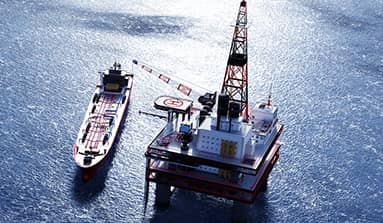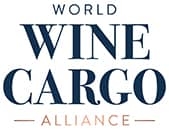The United Kingdom may have left the European Union (EU). Still, any business that wants to import and export from or through the EU and The European Economic Area (EEA) must work to their rules and regulations. As the future relationship between the UK and EU is still evolving, rule changes that affect the EU member states will also apply to UK businesses who trade with Europe.
There are new rules for transporting goods to, through or within Europe coming in February and May 2022. The rules are part of the UK’s deal with the EU under the post-Brexit Trade and Cooperation Agreement.
These rules affect all modes of transport used for carrying goods, from cars, trailers and light vehicles through to HGV haulage, making it much more challenging to manage your imports and exports without professional qualifications and licenses.
THE KEY RULE CHANGES
- As of 2nd February 2022, you must declare the transportation of goods inside the EU and the EEA.
- You may need a Vehicle Operator License and a Transport Manager if using any type of vehicle for transporting goods, even cars.
As of 21st May 2022, you’ll need a standard international goods vehicle operator licence to transport goods in the EU, Iceland, Liechtenstein, Norway and Switzerland using:
- vans or other light goods vehicles
- vans towing trailers
- cars towing trailers
WHAT DOES THIS MEAN FOR YOU?
You can no longer manage your transportation without a Transport Manager or having the qualification yourself. If you already have a goods vehicle operator licence, you will require licences for all vehicles used for transporting goods, no matter what size.
INVESTING IN THE LOGISTICS FUTURE
At KC Group Shipping, we have invested time and financial resources, including over £100,000, updating our IT software, hardware and infrastructure to ensure we are ready to keep your goods moving. Our software not only has a direct interface with HMRC but is Electronic Data Interchange (EDI) capable to connect seamlessly to your business logistics software and systems. We can also offer deferment account facilities to support payment of VAT/Duty to HMRC.
We have also made a significant investment in personnel, with five new team members joining KC Group Shipping. To ensure every team member understands how this new investment and Brexit regulations will impact our business and yours, all staff have undergone thorough training over the last few months.
BORDER REGULATION EXPERTISE
Currently, over 70% of the trade lanes operated by KC Group Shipping are out with the EU market, demonstrating our experience in handling export and import regulations for most of our client base. However, we understand that many businesses will suddenly face significant changes in the way they need to approach European trade, which will be a huge learning curve for many.
KC Group Shipping has a European network of customs experts covering every country within the European Union and the European Economic Area countries, including Norway and Switzerland, which have always been subject to additional requirements.
Below is a brief overview of some of the rules and regulations which have come into force since the UK left the EU. These are continually changing and should be for guidance only. To ensure you are always up to date with logistics news, follow us on Linkedin and Twitter.
EORI NUMBER - HAVE YOU GOT YOURS?
From 1st January 2021, importers and exporters now require an EORI number to move goods between the UK and the EU. However, the exchange of goods between Northern Ireland and the Republic of Ireland is still subject to change.
Some GB traders may also need to apply for an EU EORI number. Traders need an EU EORI number if their business makes customs declarations or gets a customs decision in the EU.
Not having an EORI will incur costs and delays in clearing goods. In the future, one common identification number should be more efficient, both for economic operators and customs authorities.
To apply for an EORI number, visit the gov.uk site by clicking here. use this link https://www.gov.uk/eori?step-by-step-nav=1faad9b3-e5ef-47f6-a3ba-4715e7e4f263
DECLARING GOODS FROM 1ST JANUARY 2021
If you currently import goods from the EEA and the rest of the world, then nothing much should change from your current way of working. EU customs will fall into line with these existing controls. The most significant changes will apply to licences and certificates for bringing certain goods into the UK. There may also be an inspection fee before goods are released; these include:
- Live animals and animal products
- Fish for human consumption
- Fish or shellfish for aquaculture
- Fish for ornamental purposes
- Plants and plant products
- Veterinary medicines
- Wood and timber
- Controlled drugs
- Pharmaceutical products
- Gases.
WHAT ELSE WILL CHANGE?
There will be changes to how product marking and labelling will have to comply with new standards from 2021. New marketing standards will also apply to food, animal products and hops. An example of this is the current CE marked goods produced in the UK will need to change to UKCE by January 2022.
TARIFFS AND RULES OF ORIGIN
The UK-EU TCA secures zero tariffs and quotas on goods moving between the EU and UK, provided those goods meet the rules of origin (RoO). The RoO determines the “economic nationality” of goods based on the products or materials used in their production origin. They prevent goods manufactured in third countries from being routed through the UK (or the EU) to avoid paying third country tariffs.
To benefit from the TCA zero tariff, businesses must show the origin of their goods. A product qualifies as ‘originating’ if it is ‘wholly obtained’ in the UK and EU or has been substantially transformed in one or both markets.
Rules of origin can be onerous. In some cases, the rules are specific to particular products. Some businesses cannot or do not wish to claim zero tariffs because of the complexity or cost of the paperwork.
KC SHIPPING - READY TO HELP BEYOND 2022
Our expertise, experience and forward planning will ensure your business will have a minimum impact from Brexit and our future trading relationship with the EU. Our processes and systems are in place to ensure we are ready to support you and your business operations. We hope this article has been a helpful guide you through some of the stages to ensure you are prepared for post-Brexit.












